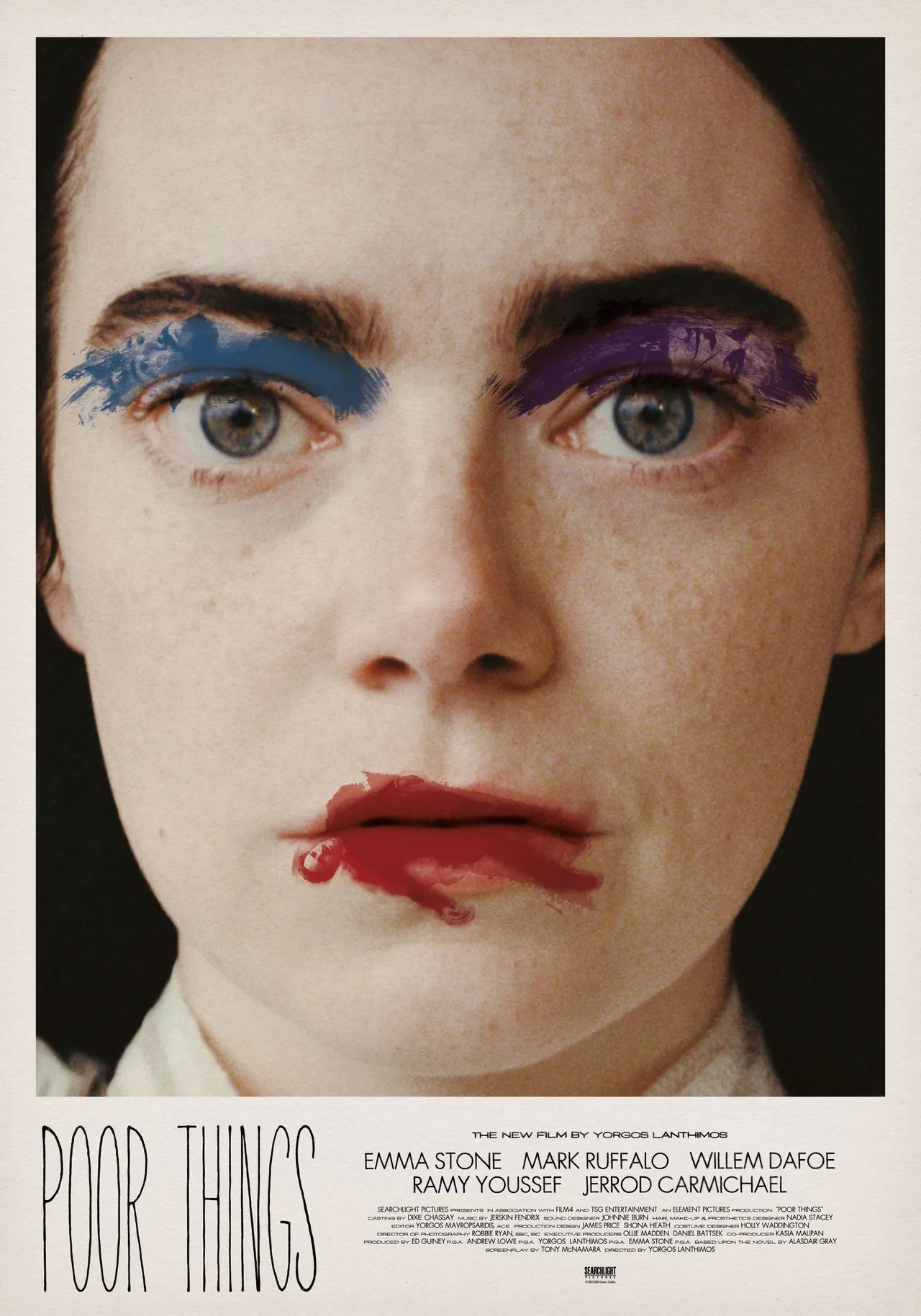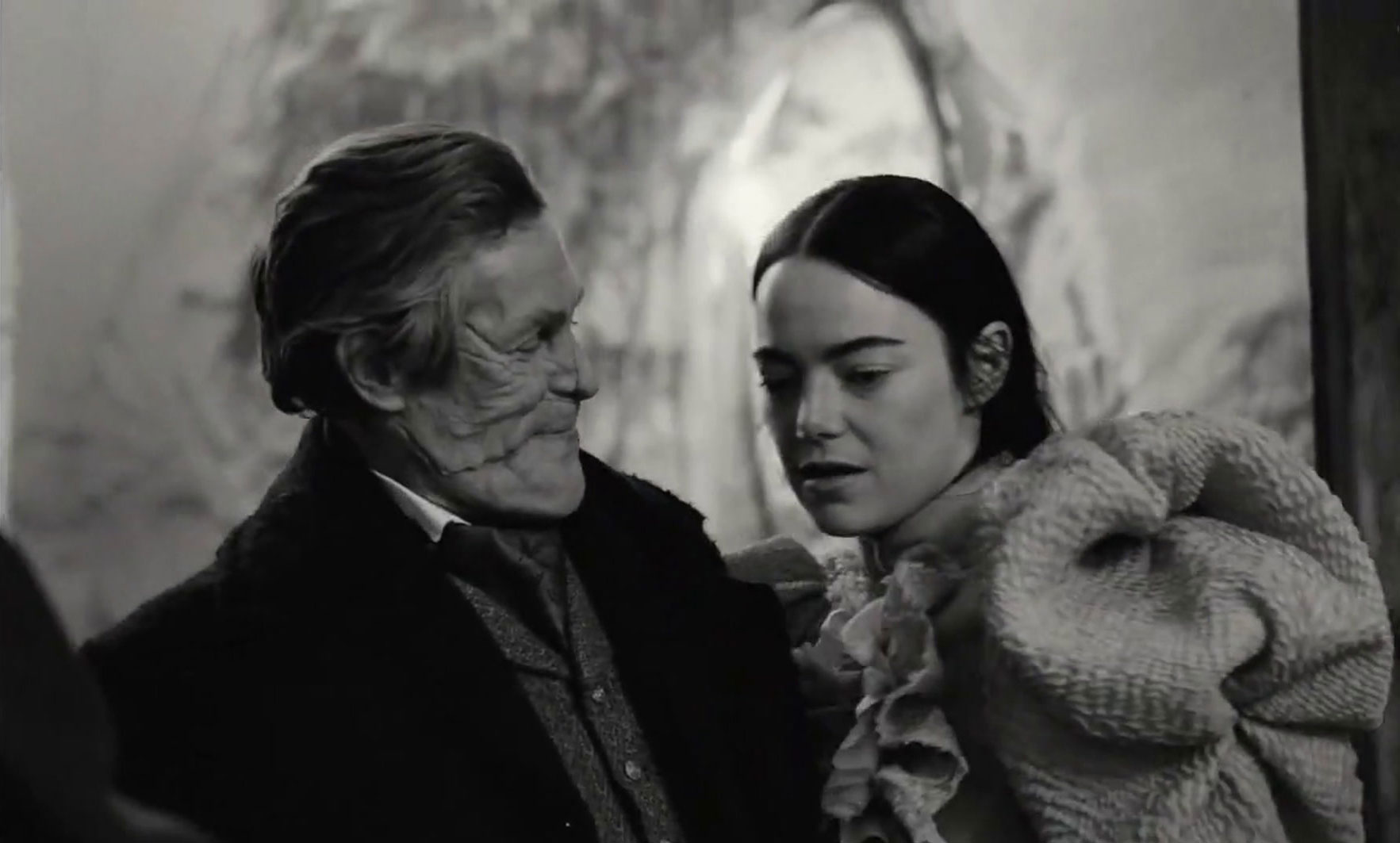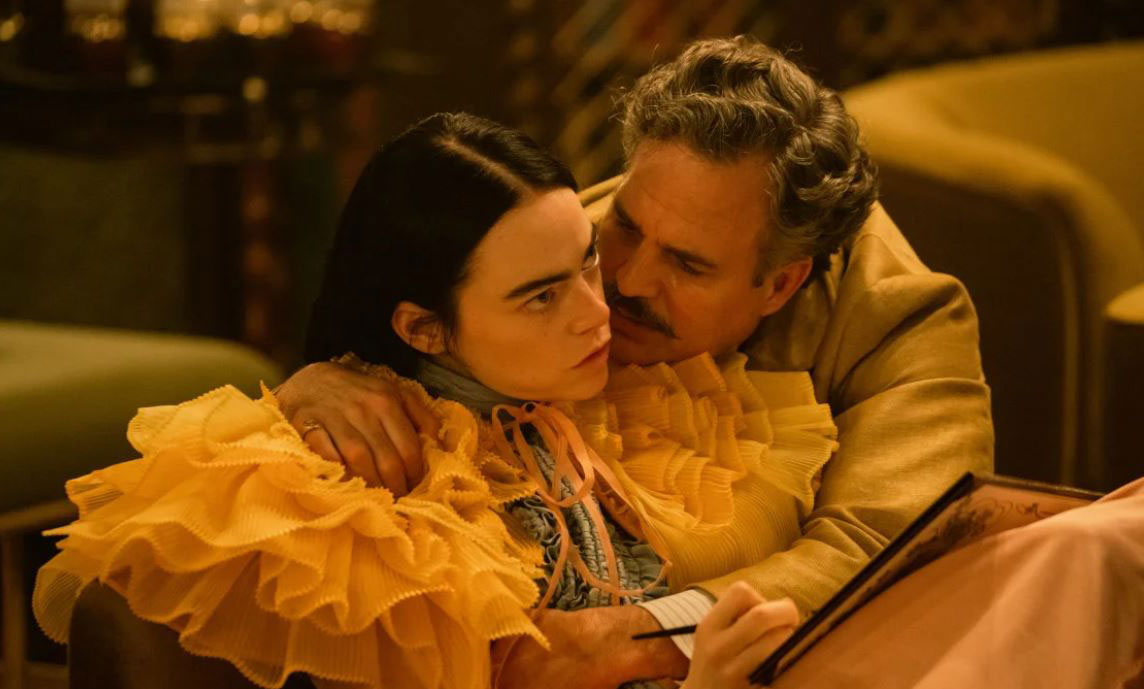
Director: Yorgos Lanthimos
Writer: Tony McNamara (screenplay), Alasdair Gray (novel)
Cast: Emma Stone, Mark Ruffalo, Willem Dafoe, Ramy Youssef
Producers: Yorgos Lanthimos, Andrew Lowe, Ollie Madden, Emma Stone
Music: Jerskin Fendrix
Cinematographer: Robbie Ryan
Editor: Yorgos Mavropsaridis
Cert: 18 (TBC)
Running time: 140mins
Year: 2023

What’s the story: Brain damaged young woman Bella Baxter (Stone) lives in the care of radical surgeon and adoptive father Godwin “God” Baxter. Kept in Godwin’s vast house, Bella yearns to discover the world.

What’s the verdict: What to make of Yorgos Lanthimos’ latest slice of luminescent absurdism? Certainly there will be those unamused by the film’s grotesquery and bawdiness. Some may even bemoan Emma Stone for giving a “brave” performance (i.e., lots of nudity and sex) in a “frivolous” movie, rather than a heavy social issues drama.
For them, our condolences. Poor Things is a riot. An absurdist allegory. A feminist retelling of the Frankenstein story, shot through with the irresistible weirdness and wit of vintage era Terry Gilliam. But also embracing the spirit of Georges Méliès, James Whale, Davids Lynch & Cronenberg, and Agnes Varda.
Without spoiling the bigger plot reveals, Stone is Bella, an experiment being conducted by Dafoe’s “God.” Godwin is a brilliant surgeon, whose misshapen, scarred face may be the result of experiments conducted upon him as a child by his own surgeon father. Bella is a grown woman with the mental capacity of an infant. Godwin aims to improve her, and hires medical student Max (Youssef) as his assistant. Max is to observe and record Bella’s progress. But as her intellect improves, Max finds himself drawn to Bella.
Which is a shame as Bella is hungry for adventure, the most likely chance of which seems to be with rakish cad Duncan Wedderburn (Ruffalo). Journeying to exotic lands, Bella learns of the flesh and the mind, her sex, the cruel fragility of men, and her place in the world.
Poor Things is screamingly funny and consistently dazzling. A journey of self-discovery film, in which carnal knowledge is entwined with the scholastic and the philosophical, it’s everything Barbie wanted to be but couldn’t. And while it’s unlikely to do Barbie money at the box office, Emma Stone should be joining Margot Robbie in the Best Actress Category at next year’s Oscars. Can Stone make it two statuettes in seven years? Her powerhouse performance shifts from humour to pathos to empowerment, which is everything the Academy likes. Then again so did Robbie’s performance, and the Academy also likes a bit of cultural zeitgeist.

Fascinatingly, the basic story of this feminist tale (adapted by Tony McNamara from Alasdair Gray’s 1992 novel) is not a million miles away from the porn lit. of The Story of O or Emmanuelle. Two things shift Poor Things away from the thin intellectual gruel and entrenched misogyny of those books and their ilk, plus the softcore-fumbling film adaptations.
First, Bella’s ferocious, logical intelligence and curiosity that places both sexes on even ground. Second, her total lack of shame, particularly when discovering she should be the principal beneficiary of any commodification of her body. Post-feminist feminism is alive and well and living in Yorgos Lanthimos’ phantasmagoria.
Oh, what a phantasmagoria this is. A triumph of Production Design (take a bow Shona Heath and James Price) and Costume Design (likewise Holly Waddington). Employing his trademark wide angle and fisheye lenses, plus crisp black & white or saturated colour visuals, miniatures, and gorgeously artificial cities and vistas, Lanthimos has created a beguiling steampunk world. Soaked in absinthe and laced with an opium-eating surrealness.
Through all this marches his cast. Led by Emma Stone, whose stiff, marionette-limbed doll-baby transmogrifies into a character quite formidable. Dafoe as an only slightly benign mad doctor is another memorable bizzarro for his repertoire, while Youssef does an admirable job of being a kind-eyed audience anchor.
But the Best Supporting Actor plaudits should go to Mark Ruffalo as hilariously vainglorious, self-pitying, and horny bounder Duncan. Pitching his performance somewhere between Leslie Philips and Matt Berry’s Toast, Ruffalo has perhaps never had this much fun on screen before.
Put quite simply, a rollicking movie. Anyone who doesn’t like it? Poor things…
Rob Daniel
Letterboxd: RobDan
Podcast: The Movie Robcast
